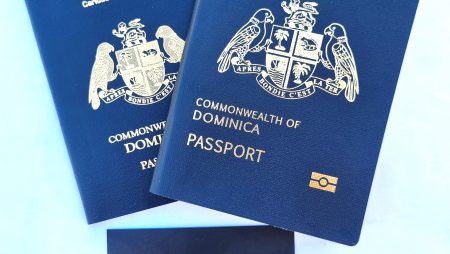
New EU’s Travel Authorisation System to Be Introduced in 2022

Starting from next year, the European Union (EU) will implement an electronic travel authorisation system ETIAS for arrivals from countries that are not a part of the EU or Schengen Area. The goal of the new system’s introduction is to improve internal security, fight terrorism, and prevent illegal immigration. After it comes into effect, travellers who can currently visit Europe on a visa-free basis will be additionally required to undergo simple security checks and receive an authorisation prior to their entry to EU or Schengen states.
At present, there are over 60 countries (including the UK, St Kitts and Nevis, Dominica, St Lucia, Antigua and Barbuda, Grenada, Vanuatu, and Montenegro) whose citizens are permitted to enter the EU and the Schengen Area visa-free. Although there is a limit of up to 90 days for a six-month period, some people stay for longer in Europe, thus violating the regulation. Moreover, recent security concerns regarding the threat of terrorism and the migrant crisis made it necessary to develop stronger tools to track and control the flow of people crossing the EU borders. The EU has consistently affirmed that it wants to make travel within its borders safer.
The set of measures devised by the European Commission to reduce waiting times and the number of procedures as well as to help in solving security problems has resulted in the creation of ETIAS. ETIAS stands for the Electronic Travel Information and Authorization System and has been developed as a form of travel authorisation for visitors from non-EU / non-Schengen states who can currently travel to Europe visa-free. The implementation of ETIAS is intended to serve several purposes: to diminish illegal immigration, accelerate border control procedures, reduce the terrorist threat, and improve the security of the Schengen Area.
Once ETIAS is in force, visa-free visitors will be required to apply for and obtain a travel authorisation, and undergo security checks before their arrival to the EU. For example, citizens of St Kitts and Nevis who can now enjoy visa-free travel to EU countries will be prescreened after they have submitted their application form. The information they have provided will be processed in various databases, such as the Schengen Information System (SIS), the Visa Information System (VIS), the European Criminal Records Information System (ECRIS), and a few others. If the person’s data do not give rise to concerns, an ETIAS will be granted within the first 24 hours upon the application submission. ETIAS is planned to be granted for 3 years or until the expiry date on the travel document registered during the application.
The ETIAS application form will require basic personal information (full name, date, and place of birth, gender, etc.), passport details, criminal record, and visa history. It will cost only €7 paid online through a valid debit or credit card. However, the applicants under 18 and over 70 will not need to pay the fee.
ETIAS is expected to be obtained much simpler than a traditional visa for any of the European countries. It is scheduled to be operational by the end of 2022, and mandatory starting from January 2023. Until then, travelers from visa-exempt countries can enter the EU freely.
Would you like to become a citizen by investment in another country that allows visa-free entry to the EU and Schengen Area? We will be happy to assist you throughout the entire process of citizenship application. We can also assist you in obtaining a passport of the EU which completely excludes the necessity to apply for ETIAS and makes the most of the world visa-free. Get in touch with GLS Private Office today!



